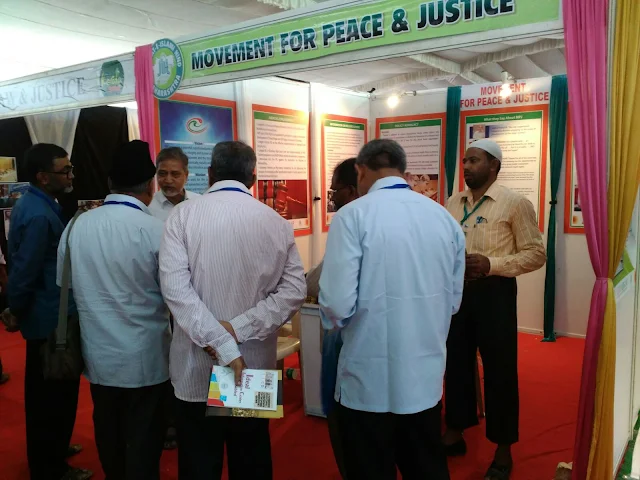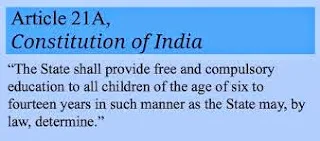MPJ Organized a Stakeholders' Consultation Meeting on the “Poor Learning Outcomes in School Education” in Mumbai.
Education is one of the most powerful tools for breaking the poverty cycle. It is the only vehicle, which can bring equality to society. But the poor quality of education has caused poor learning outcomes in our country and the poor learning outcome is pushing our children out of the education system. Ultimately, the drop-outs are forced to join child labour and the unorganised sector.
Movement for Peace and Justice for Welfare (MPJ) a
public movement working for the betterment of the people of Maharashtra, organized
a consultation meeting on the “Poor learning outcomes in school education on
Saturday, 24th September 2022 at Anjuman-I-Islam College in Mumbai.
This event got an overwhelming response from all the stakeholders. People from the
teaching community, civil society, academics, government and parents were
present in large numbers.
Mr. Muhammad Anees gave a brief overview of the
current situation of poor learning outcomes in school education. Prof. Sharad
Jawadekar, a retired teacher from Pune University and a well-known education activist, Dr. Sandhya Mhatre, a researcher and education activist, Mr. Ashfaq Ahmad, Education Officer, Mr.
Faheem Abdul Bari from All India Ideal Teachers Association, Mr. Syed Habib
representing the Education department of Jamaat-e-Islami Hind and members of
All India Samajwadi Shikshan Haq Sabha were part of the panel of experts.
The panelists stressed the importance of increasing
public spending on education and raising awareness among the community to take ownership
and accountability to run and manage the schools.
Dr Kazim Malik announced MPJ’s plan to hold local-level
consultation meetings on the issue at different locations in Maharashtra to
engage all the stakeholders and aware them of the problems and challenges
associated with school education.
MPJ’s Youth Day Celebration
 |
| Urdu Times |
 |
| Lokmat, Marathi |
 |
| Loksatta, Marathi |
MPJ Observes Sachar Committee Day, 2016
“Constitutionally, the state is bound to build an inclusive, plural, secular and a just society and it is a duty of the state to equitably integrate its religious minorities and other vulnerable groups. Muslim Social exclusion is present in the society in various forms. The Muslims are socially, politically, economically, culturally, educationally segregated. Hence, Muslims of the state need immediate attention of the government and greater access to education, healthcare and other basic amenities to avoid poverty and social exclusion. Muslims need affirmative action just as much as other underprivileged groups, including Dalits and OBCs. They deserve social justice and equity as much as other deprived groups”, says Muhammad Siraj President of MPJ.
MPJ demands to implement Supreme Court’s order to provide the relief for the drought affected people
MPJ opposes the demand of Dry Day on the eve of Prophet's birthday
MPJ Maharashtra Observes Minority day
 |
MPJ protests to make Haider Bagh maternity home of Nanded district functional.
MPJ launches one month long “Health for All” campaign
 |
| Afsar Usmani addressing the gathering |
health infrastructures in the state. At lowest level, government has established Primary Health Centres and Sub-Centres in Rural areas, while in urban areas there are community health centres, municipal dispensaries, maternity homes and health posts. These health institution falls under primary health services. In Secondary Health Services, there are District, Sub-District, and Rural Hospitals, where the specialty services are provided at various hospitals.
MPJ hosts a Press conference on failure of compliance with the Gazette on SECC
 |
| Sri Shabbir Deshmukh addressing media |
MPJ conducts a health workshop at Nagpur
Right to food: MPJ orgaised a statewide awareness campaign on right to food
The Right of Children to Free and Compulsory Education in India
Education is a child’s right in India
- Every child between the ages of six to fourteen years shall have the right to free and compulsory education in a neighbourhood school, till completion of elementary education.
- The Act clarifies that ‘compulsory education’ means obligation of the appropriate government to provide free elementary education and ensure compulsory admission, attendance and completion of elementary education to every child in the six to fourteen age group.
- The Act also clarifies that ‘free education’ means, no child shall be liable to pay any kind of fee or charges or expenses which may prevent him or her from pursuing and completing elementary education. In other words, there is no direct (school fees) or indirect cost (uniforms, textbooks, mid-day meals, transportation) to be borne by the child or the parents to obtain elementary education. The government will provide schooling free-of-cost until a child's elementary education is completed.
- Where a child above six years of age has not been admitted to any school or though admitted, could not complete his or her elementary education, then, he or she shall be admitted in a class appropriate to his or her age.
- This act mandates that, the children are entitled to get quality education.
- For carrying out the provisions of this Act, the appropriate government and local authority shall establish a school, if it is not established, within the given area, within a period of three years, from the commencement of this Act.
- The Central and the State Governments shall have concurrent responsibility for providing funds for carrying out the provisions of this Act.
- This act also calls for a fixed student-teacher ratio.
- School teachers will need adequate professional degree within five years or else will lose job.
- School infrastructure (where there is problem) to be improved in three years, else recognition cancelled.
- Provides for 25 percent reservation for economically weaker section and disadvantaged communities in admission to Class one in all private schools.
- It provides for appointment of appropriately trained teachers, i.e. teachers with the requisite entry and academic qualifications.
- It prohibits (a) physical punishment and mental harassment; (b) screening procedures for admission of children; (c) capitation fee; (d) private tuition by teachers and (e) running of schools without recognition.
- It provides for development of curriculum in consonance with the values enshrined in the Constitution, and which would ensure the all-round development of the child, building on the child’s knowledge, potentiality and talent and making the child free of fear, trauma and anxiety through a system of child friendly and child centred learning.









































